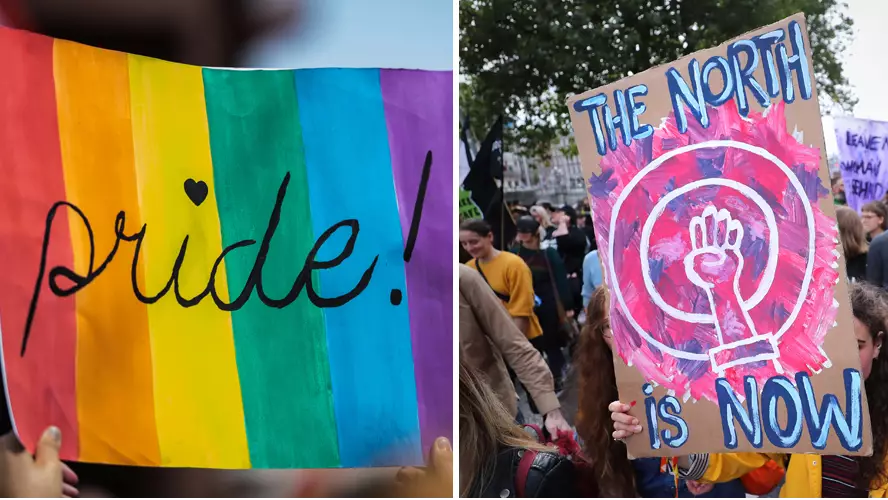
In a historic moment, one that campaigners have been tirelessly campaigning for for decades, Northern Ireland has decriminalised abortion and same-sex marriage.
The changes came into force at midnight last night, despite a last minute attempt to block them.
Up until now, an abortion was only possible in Northern Ireland if a woman's life was at risk, or it put her in danger physically or mentally, but last night the UK government repealed the 158-year-old law, that made abortions a criminal offence.
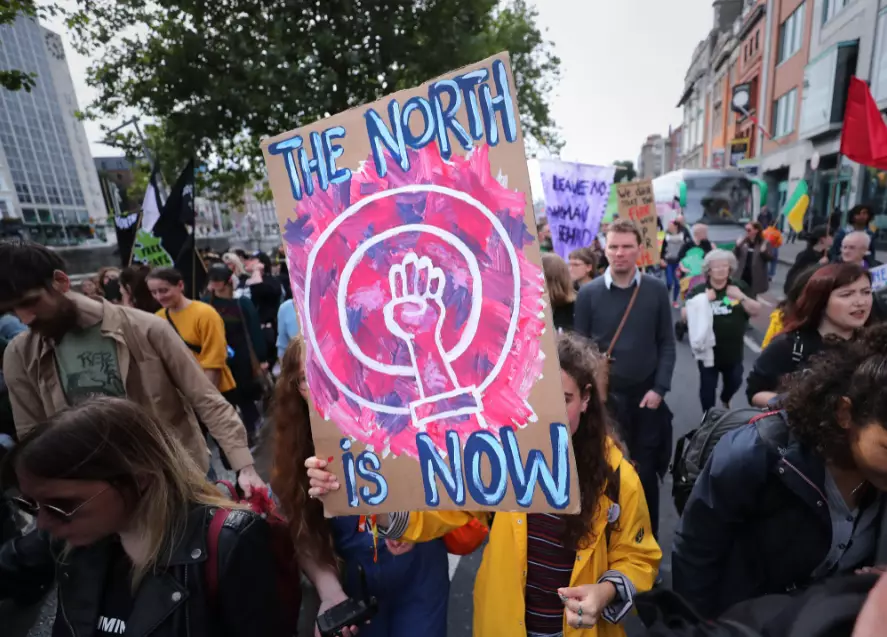
Before now, not only was it illegal for someone to undergo a termination, but it was also illegal for anyone to assist her in securing one, including health professionals, meaning women had to travel to England for them to avoid being prosecuted, or worse, choose a back street option.
Advert
Women could not even ask for an abortion in the cases of rape and incest.
It is a momentous change, one that will have a framework in place by 31st March 2020, thanks to the Department of Health working with medical staff in Northern Ireland to ensure they are fully informed and updated with policies and guidelines.
And while many are still pushing pro-life views, most are overwhelmed and emotional at the news.
One Twitter user said in an emotional post: "Years ago a friend accompanied her sister to England from Belfast for an abortion.
Advert
"She went to a phone box near the hospital to phone home.
"Taped to the wall someone had handwritten all the local dialling codes for every part of Ireland. Today ends that journey."
The poignant tweet proves just how many women were forced over to England to simply make a choice about their own bodies.
Another tweet mentioned the now famous case of Savita Halappanavar, who died in a hospital in Galway, in the Republic of Ireland. She thought was miscarrying and in serious pain, so was asked to be induced.
Advert
She was denied the inducement as it would lead to miscarriage and the baby still had a heartbeat, despite the fact she would go onto miscarry anyway.
Savita died seven days later due to sepsis, something her family believe never would have happened had she been granted an abortion.
And although this happened in a different part of Ireland, it is a prime example of putting an unborn child's life ahead of a living adult - one of the main arguments of campaigners.
Advert
The tweet read: "Savita Halappanavar entered University Hospital Galway on this day 2012, complaining of back pain.
"Seven days later she was dead from sepsis due to being refused an abortion, even though the foetus was not viable. She should be remembered today."
Another tweet discussed Northern Ireland's Sarah Ewart, who was denied an abortion in Northern Ireland in 2013, despite being told her baby wouldn't survive as soon as the umbilical cord was cut.
The tweet reads: "One of the women standing behind that imbecile is Sarah Ewart, a woman who was denied an abortion despite being told her baby wouldn't survive outside the womb and had to face physical and emotional trauma because of NI's archaic laws. Have a bit of decency like"
Advert
Doctors told Sarah she'd have to travel to England for an abortion due to the law. She felt she couldn't carry her child to full term knowing it would not survive, so travelled to England to terminate, which she described as an awful experience, according to the BBC.
"I should have been at home with my family and friends around me, supporting me."
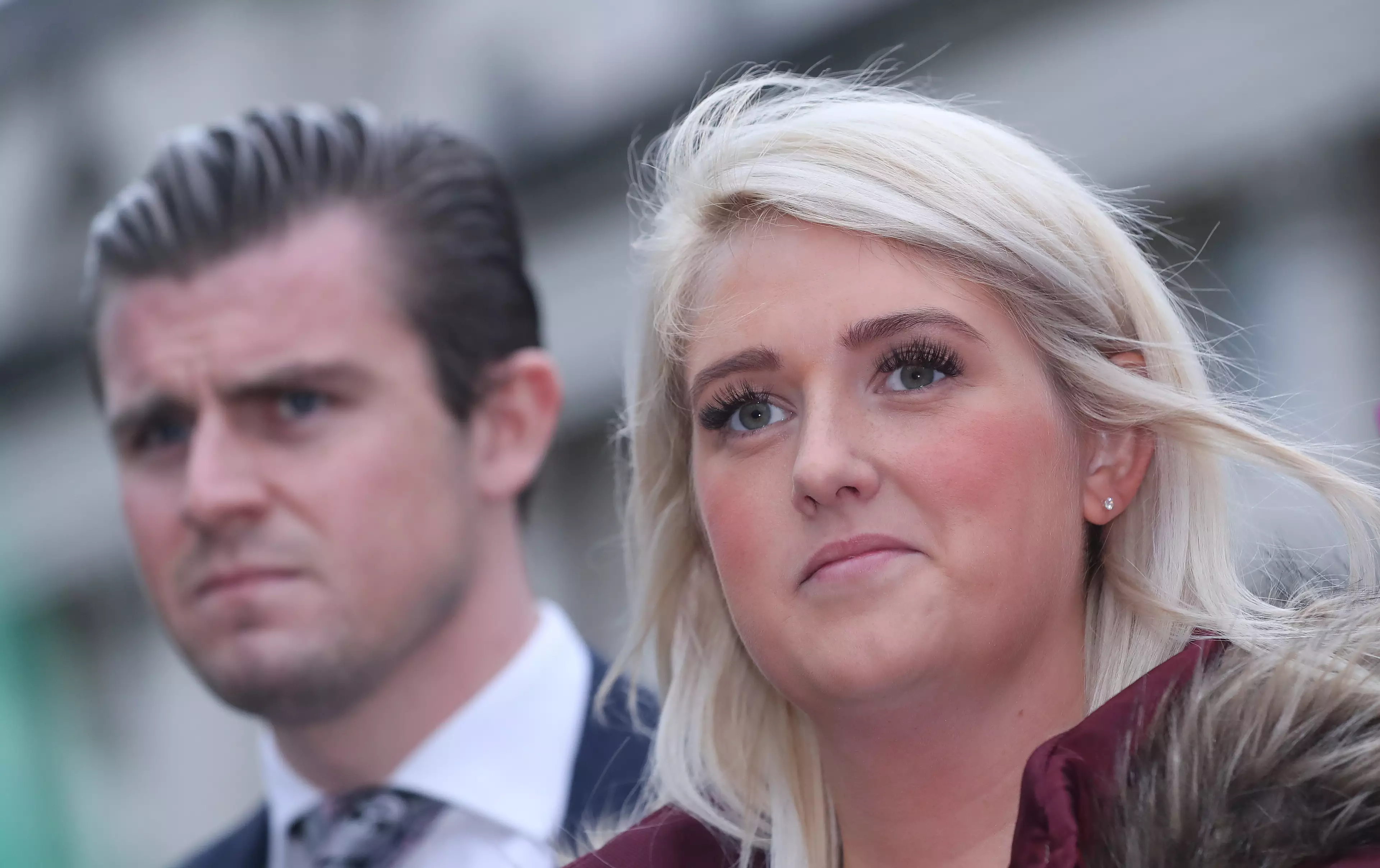
"I don't think I'll ever have closure - we unfortunately have no remains of our baby daughter, no grave to visit, and that's something I'll never get back," she told the BBC.
She has since been campaigning for the decriminalisation of abortion in Northern Ireland.
Her case was heard earlier this month by Belfast High Court, that ruled the law breaches the UK's human rights commitments - landmark decision.
We at Tyla cannot believe it's taken this long and such relentless campaigning to quash this draconian law. We're all for pro choice and people not having their life and love decisions being made for them.
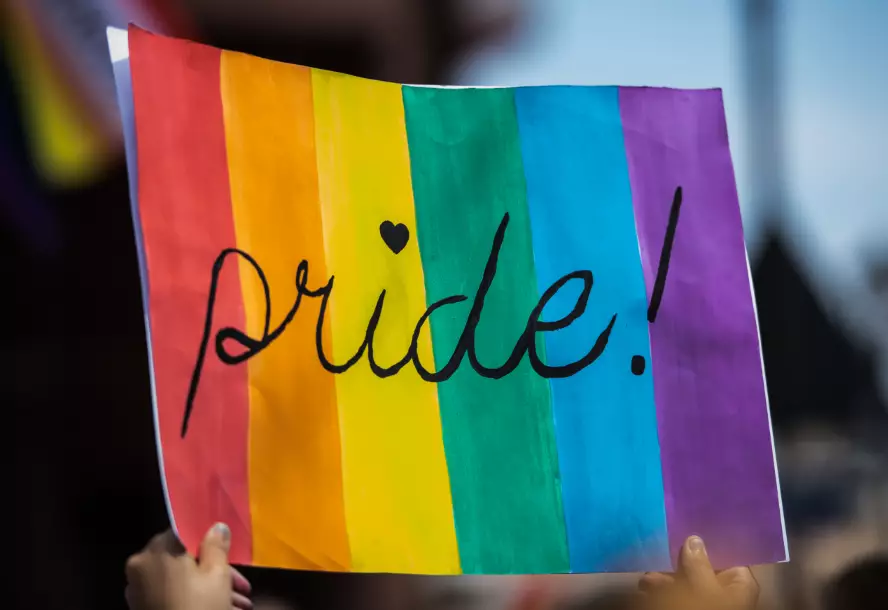
And the majority of MPS in British parliament obviously felt similarly, voting to overhaul the laws back in July.
To block the move, Belfast's devolved executive and assembly, made up of the DUP and Sinn Féin parties that split ways in January 2017, needed to rejoin forces by midnight on 21st October - an attempt of which failed.
Instead, political leaders staged walkouts in the UK government in an attempt to block the legislation, but it was clear the two parties couldn't elect a new agreed speaker, with both unionist and nationalist support, so the legislation was passed.
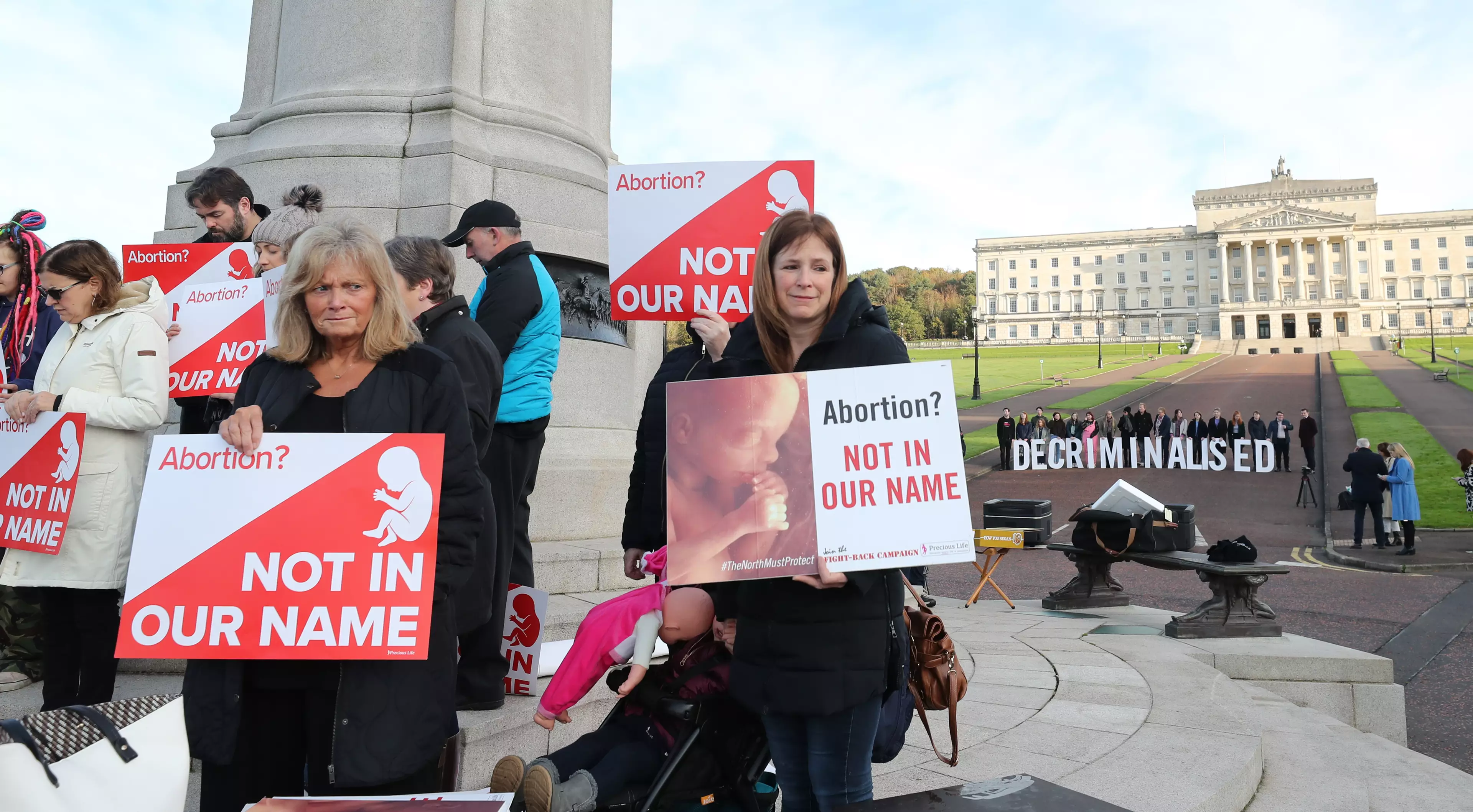
Katherine O'Brien, Associate Director at the British Pregnancy Advisory Service, bpas, said: "The decriminalisation of abortion marks a momentous victory for women's rights in Northern Ireland.
"It is a testament to the years of hard work by campaigners, healthcare professionals, and hundreds of women who have bravely spoken out about the impact of their country's draconian abortion law.
"Following this important legislative change, the Secretary of State must now publish the consultation to begin the process of creating a framework for accessible, fully funded local abortion services.
"Decriminalisation does not mean deregulation, and abortion will be governed in the same way as all other medical and clinical procedures [...] set by professional and medical bodies.

"Training must be made available as a matter of urgency for those who require it in order to provide the abortion care their patients need."
And it wasn't just the one piece of good news, because same sex marriage was also legalised in the same sitting - bringing Northern Ireland in line with the rest of the UK, by abolishing these archaic laws.
It is something that should have occurred a long time ago, but better late than never.
Same sex marriage regulations should be in place as early as 13th January 2020.
Northern Ireland Secretary Julian Smith said: "This means, at the latest, the first civil same-sex marriages will take place on the week of Valentine's Day 2020."
Finally, sense prevails.
Featured Image Credit: PA